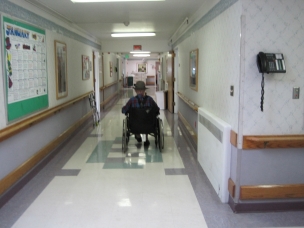More patients in San Diego County nursing homes and across the country are being diagnosed with schizophrenia for reasons that are questionable and raise concerns about nursing home negligence, as a recent article in The New York Times suggested. But are some patients more affected than others, and is race playing a role? A follow-up report in The New York Times argues that Black residents are being disproportionately affected by these harmful diagnoses and subsequent administration of antipsychotic medications, suggesting that nursing home abuse has a clear racial dimension in these situations. Are schizophrenia diagnoses, and other issues in nursing homes, affecting Black residents more than other elderly patients at skilled nursing facilities?
Black Nursing Home Residents are Diagnosed with Schizophrenia More Often
More nursing home residents are being diagnosed with schizophrenia so that the facilities can administer antipsychotic drugs to “difficult” patients, The New York Times has suggested. Indeed, since nursing home residents with schizophrenia can still readily be prescribed antipsychotic medications (whereas regulations have attempted to reduce the use of antipsychotics in other nursing home cases), there has been a surge in the number of patients diagnosed with schizophrenia. Since 2012, the number of elderly patients diagnosed with schizophrenia has “grown by 70%.” The article points to a new study in the Journal of the American Geriatrics Society, which found that the “impact of this has been more severe on Black residents.”
 Southern California Nursing Home Abuse Lawyer Blog
Southern California Nursing Home Abuse Lawyer Blog



 Moreover, three other individuals are facing charges for their own role in the elder abuse case. Each of these defendants—former director of nursing Gwen Hughes, former pharmacist Debbi Hayes, and hospital administrator Pamela Ott—worked for the nursing home facility in Lake Isabella. Officials say that Hughes, starting in 2006, allegedly ordered for patients to receive high doses of these psychotropic medications, particularly to Alzheimer’s or dementia suffering patients. The former nursing chief Hughes mandated that the medications be given to patients who argued with her, made noise or were otherwise disruptive; Pormir merely signed off on the orders after the drugs were administrated. Scheduled for October, she will face eight counts of harming or causing the death of an elderly adult and two counts of assault with a deadly weapon. As for Ott, she pleaded no contest last month to a conspiracy charge with here sentencing coming next month.
Moreover, three other individuals are facing charges for their own role in the elder abuse case. Each of these defendants—former director of nursing Gwen Hughes, former pharmacist Debbi Hayes, and hospital administrator Pamela Ott—worked for the nursing home facility in Lake Isabella. Officials say that Hughes, starting in 2006, allegedly ordered for patients to receive high doses of these psychotropic medications, particularly to Alzheimer’s or dementia suffering patients. The former nursing chief Hughes mandated that the medications be given to patients who argued with her, made noise or were otherwise disruptive; Pormir merely signed off on the orders after the drugs were administrated. Scheduled for October, she will face eight counts of harming or causing the death of an elderly adult and two counts of assault with a deadly weapon. As for Ott, she pleaded no contest last month to a conspiracy charge with here sentencing coming next month.
 The
The 





